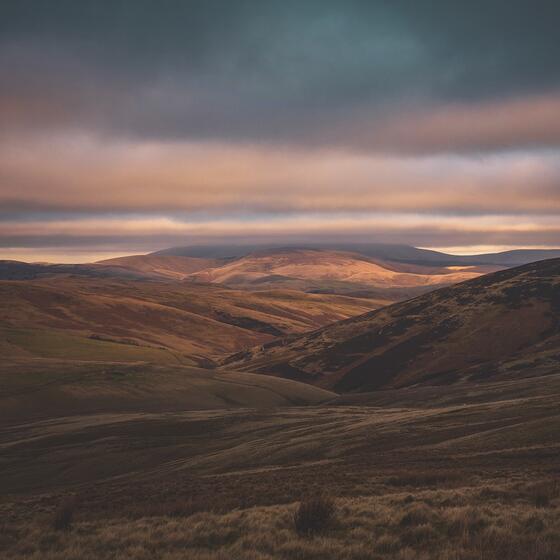Grab your gorpcore; a new trend for lazy adventuring is putting off-grid retreats, go-slow nature experiences and minimal-effort expeditions in the spotlight. Here’s everything you need to know about the trend – hiking boots, optional
03 March, 2023
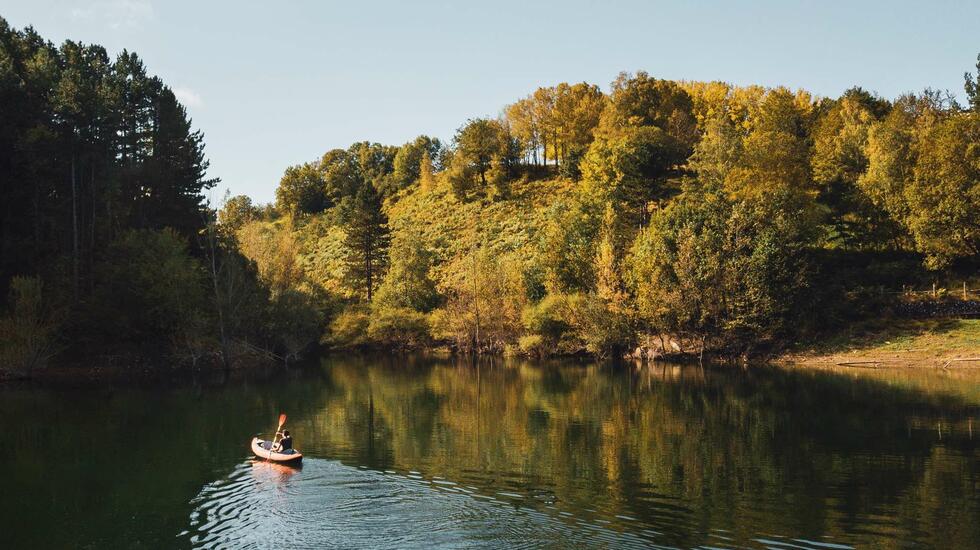
Giulia
Ghinassi pokes with a stick at the old lupine scat
unceremoniously plopped on the gravel trail. “A wolf’s poo is like
its social media,” she explains. “You can tell a lot from it – its
diet, its gender, its age.”
According to Ghinassi, a nature guide at Tuscany’s Oasyhotel, 13
wolves live in Tuscany’s Oasi Dynamo Reserve, a 1,000-hectare,
WWF-affiliated tract some 60km from Florence. Not unexpectedly for a species hunted
to near extinction by humans, sightings are rare. But then,
sightings aren’t really the point at Oasyhotel. Despite its
seemingly remote location in mountainous San Marcello Piteglio, the
16-lodge eco-stay is less about hair-raising animal encounters and
heart-thumping extreme sports and more about accessible, easy
adventuring.
Lazy adventuring is gaining momentum: trips that let you leap
into nature’s rambunctious interior without losing sight of the
footpath behind you are outperforming extreme explorations. Scaling
previously unattainable peaks or pushing harder, faster and higher?
Old news. Today’s travellers are escaping the digital dungeons of
their social feeds via weekend digital detoxes, placid hill hikes
and staycation escapes to seemingly secluded cabins whose isolated
views belie their nearness to major cities. Foraging courses are popping up everywhere
(including, of all places, London); inclusive adventure groups are encouraging
previously under-served communities to lace up their hiking boots;
bird-watching is having a renaissance; and – perhaps the clearest
indication that we’re hoping to leave digital devices behind in the
car when we head out for a hike – paper map sales are on the up. In
the UK, Ordnance Survey reported year-on-year increases in sales of
maps, while the American Automobile Association produced 123 per
cent more maps in 2022 than it did the previous year.
So why, when the travel industry has flipped back to business
post-pandemic and there’s never been more incentive to dream big
and tick off a bucket list of travel experiences, are growing
numbers of young travellers switching their one-way flights to
Machu Picchu and year-long backpacking across Australia plans for
gentle ramblings in their own backyard? A heightened
eco-consciousness and money-saving savviness are undoubtedly part
of the appeal, but there’s something more to it.
“For us, it was about scaling back,” says Charlie Wild, one half
of the duo behind adventure Instagram account @the.travel.project. Wild and his partner, Jess Last,
saw interest in the account soar when they launched an “Achievable
Adventure” challenge during the pandemic, a “52 adventures in 52
weeks” initiative in which they toured the UK on the hunt for
outdoor experiences that didn’t require a hefty bank balance – or a
backpack full of gorpcore gilets. Inspired by how roving to all
corners of the globe had made them feel in the past, the pair
wanted to reproduce those same benefits in their daily lives, sans
the expense or the air miles. “We thought, OK, why can’t we make
this more realistic and find that feeling in a more regular
routine?” explains Wild. Their adventures included sunrise swims in
their local river, foraging along the Pembrokeshire coastline and
spending a night in a Scottish cabin.
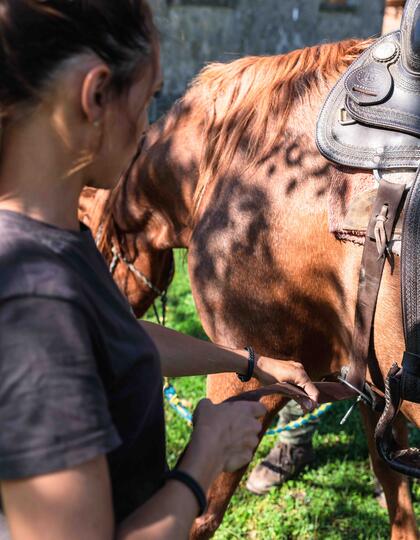
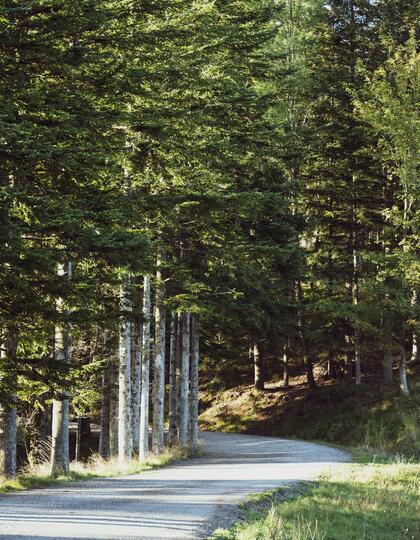
Immersion in nature at Oasyhotel. | Photo credit: Valentina
Sommariva
#VanLife this isn’t – the new era of adventure might take you
off-grid (if only momentarily), but there are no romantic, bohemian
aspirations of a new hippie culture. Lazy adventuring is about
fitting outdoorsiness around your 9-5, rather than leaving the rat
race all together.
In the hotel world, off-grid cabins are now all the rage:
Unplugged’s
digital detox cabins – handily located near London and Manchester –
provide secluded countryside escapes designed for switching off and
recharging. They’re equipped with phone lockboxes for those wanting
to digitally detox. Aussie brand Unyoked launched its own modern log cabins in
the UK in 2022, promising London “9-5ers” their “own private cabin,
less than two hours away” with guaranteed phone reception (if
needed). Likewise, in the north of England, David Cook’s Northumberland Defender Hire offers would-be
adventurers the chance to head off-range for a long weekend, living
out of a souped-up Landrover Defender, complete with portable
barbecue, a full arsenal of kitchen utensils, solar shower and a
pop-up tent on the top of the car with a memory foam mattress
inside. Bear Grylls wannabes pick the car up from Newcastle station
and can be bedding down under silent starry skies within an hour or
two. It’s all very Swallows and Amazons, except you don’t need a
jot of outdoors experience.
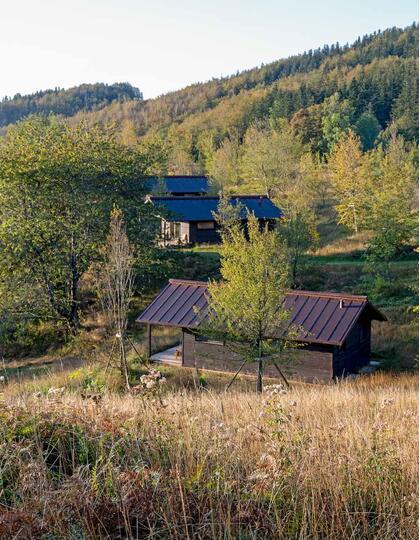
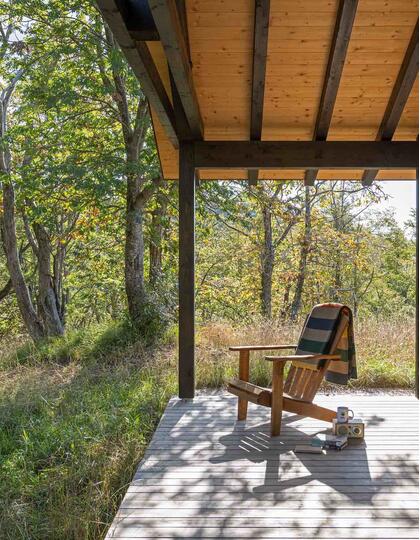
Oasyhotel is located in a WWF-affliated reserve. | Photo
credit: Valentina Sommariva
“It gives you adventurous experiences but isn’t asking you to do
something completely mad,” Charlie Wild surmises of the trend. “We
call it your dose of adventure. You don’t need a full whack. Just
having that dose keeps you feeling alive and energised for a week
or two.”
Tuscany’s Oasyhotel might be a little further to get to than a
camping trip in Dartmoor – and a little more luxurious than a hike
up Mam Tor – but its ethos aligns with the rise of a gentler style
of adventure, too. Guests staying in the pared-back, blonde-wood
lodges (which, in accordance with reserve protocol, are all
completely “moveable” and leave no impact on the landscape) are
invited to do as much – or as little – as they want. They might go
mushroom foraging, horseriding, hike through the pale-barked
birches and white and red firs on a slow-paced nature walk,
paddleboard their way across a private lake, try cheese making at
an adjoining farm or attend an outdoor yoga class. Dawn nature
walks are as much about listening for the twittering of European
nuthatches as they are seeking out elusive wolf packs. There’s a
restaurant serving a daily-changing menu dreamt up by the young
chef, a small bar that will whip up a thyme-infused Oasy sour on
request, and treatment rooms if you fancy a pummelling. But there’s
also Adirondack chairs on the lodge porches for watching the sunset
over Tuscany’s bosky mountainous interior, and time to watch a
praying mantis wander leisurely across the decking at your feet.
“We offer a different kind of luxury,” explains general manager
Federico Galligani, who, prior to taking up the Oasyhotel position,
worked at the likes of Rome’s St Regis, and The Savoy in London.
“The luxury of being out here in nature.”
It all points to a gentler style of adventure travel, where
achievable, slow-paced trips into the wilderness trump high-stakes
thrills. Why haul yourself halfway up a mountain when an amble over
the undulating Tuscan hills is just as rewarding? At Oasyhotel, on
a night walk – probably the most adrenaline-inducing activity on
offer – a single nugget of old, disintegrating scat is the only
clue of wolfish activities. A deer sighting – two wide, alarmed
eyes flashing in the torch beam – confirms that the apex predators
of Italy have long vanished into the night. Perhaps, like us, they
were clocking off from the 9-5, and going easy on the social
media.
Oasyhotel is open seasonally, from 14 April to 13 October.
Starts start from £472 per night. oasyhotel.com
